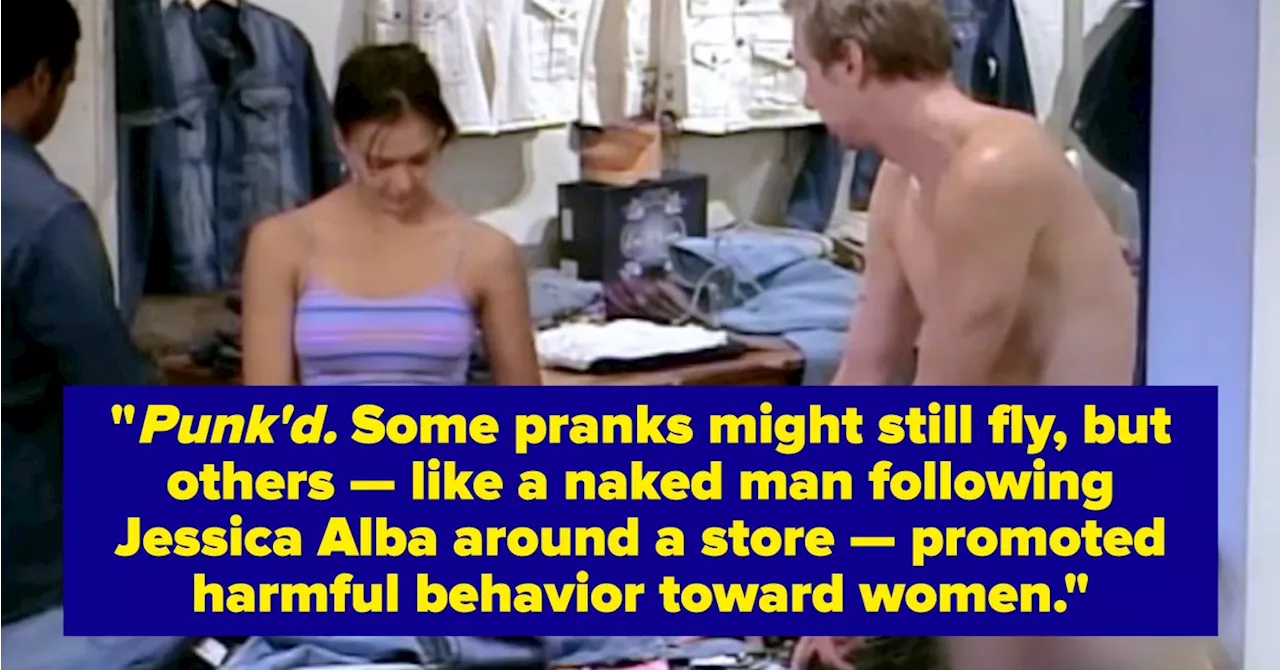UPDATE: Millennials are voicing their shock over the casual acceptance of behaviors in the 2000s that today would be deemed wildly inappropriate. As social media platforms amplify these reflections, users are sharing their cringeworthy memories, revealing just how much societal norms have shifted.
New reports confirm that what was once shrugged off as “boys will be boys” now elicits a collective cringe. From reality TV’s obsession with “revenge bodies” to the normalization of misogynistic jokes, the 2000s encapsulated a troubling era that many now recognize as harmful.
“I remember watching shows where women were objectified, and we all thought it was funny. Looking back, it feels deeply wrong,” one Millennial shared. The nostalgic but stark realization comes as a wave of social consciousness reshapes today’s cultural landscape.
The impact of these outdated norms is profound. Reflecting on their experiences, individuals recall being conditioned by media portrayals and societal expectations. “Magazines featured segments like ‘Who Wore It Better,’ treating women’s bodies as public property for judgment. How did we think that was acceptable?” another user lamented.
The stark contrast between past and present is evident. Today, binge drinking and celebrity meltdowns are no longer glamorized; instead, there is a push for mental health awareness and support. “We used to laugh at celebrities stumbling out of clubs. Now, we advocate for their well-being,” one participant noted.
The nostalgia also highlights the damaging messages many received in their formative years. “In Christian assemblies, we were told not to ‘tempt the boys,’ and we signed purity pledges,” said a high school graduate from that era. “It took years to unlearn that harmful messaging.”
Moreover, casual homophobia and misogyny were rampant in media. “Every sitcom made gay people the punchline. It was normalized, but it’s shocking to think about now,” a Millennial remarked. The shift in societal attitudes towards inclusivity and respect is a significant change from those years.
As these revelations spread across social media, many are calling for a deeper examination of the media that shaped their youth. “Shows like ‘America’s Next Top Model’ need to be studied for their impact on self-esteem and body image,” another user suggested, reminiscing about the humiliating challenges faced by contestants.
The conversation continues to grow as more people reflect on what they once accepted as normal. “I can’t believe we tolerated so much disrespect towards women and marginalized groups,” one commenter stated.
This collective reckoning prompts a powerful question: What will future generations think of today’s norms? As society evolves, the hope is to foster a culture that prioritizes respect and understanding over outdated stereotypes.
Stay tuned for more updates on this developing story as Millennials continue to share their experiences and insights on the problematic behaviors of the 2000s.







